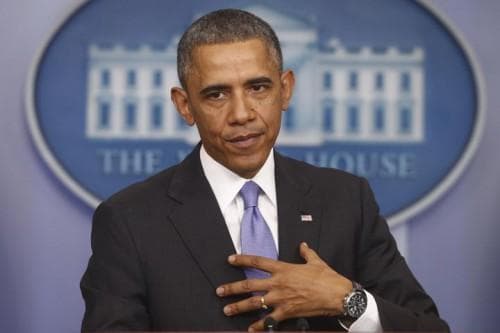Advertisement
The Great Healthcare.gov Mistake: Having An 'Older Accountant' Create It

By Michael Doonan
Guest contributor
The Center for Medicare and Medicaid Services is the behemoth federal agency that, despite limited resources, does a pretty good job of carrying out its core mission: running programs that provide health insurance for older and poorer Americans.
Expecting that this agency can also run the federal health insurance exchanges for Obamacare, however, sets it up for trouble right from the start.
The failure to locate accountability in the appropriate hands helps explain the Website debacle and anemic early enrollment, if not the president’s early miscue that everyone would be able to keep their current health insurance.
CMS simply does not know how to regulate health insurance for individuals and small business at the state level. Case in point: The agency's previous troubles implementing insurance reforms that were part of the Health Insurance Portability and Accountability Act of 1997 (HIPAA), which, among other things, stipulated that the federal government would step in if a state was non-compliant.

This was like telling your kids to clean their rooms or else you will do it for them — and in the end, national regulations turned out to be weak and ineffectual.
Turned out CMS didn’t know much about the range of health plans and insurance products in certain states. Federal officials were more scared of taking over state regulation than the states. As a result, they begged the states to comply and bent over backwards in the regulations to find any state “effort” acceptable.
With the roll out of the federally mandated health exchanges, it is déjà vu all over again.
Guess what the penalty is for states that don’t create exchanges? The federal government will come in and do it. But CMS still lacks the culture, expertise, existing systems or knowledge to do this effectively. When you think CMS, think “older accountant” not “Seattle whiz kid.” We want the accountants to pay Medicare hospital bills, but we don’t want them to design multi-faceted interactive websites that are supposed to be simple to use.
The federal government could learn a lot from the success of the Massachusetts Health Care Connector, the state’s exchange. The Massachusetts Connector succeeded in large part because it was implemented by an independent, quasi-governmental authority that hired and paid technical experts from the insurance industry, the high tech sector and the government.
It also received significant startup funding and additional support from health plans and insurers. Further, the Connector reports to a board with broad community representation including business, labor and consumers. Throughout the challenging implementation period, the Connector held public meetings operating with as much transparency as possible. It was accountable.
Based on the success of the Massachusetts program, CMS should not have oversight of the state and national exchanges. Instead, it makes sense for an independent body — call it the “Center for National and State Based Health Exchanges” — to be responsible and accountable for its success.
Out of the hands of CMS, and staffed with the best people from the states, industry, high-tech sector and other federal government agencies, the new center could create a more technology-savvy culture and work in greater partnership with states. The center could provide states with technical assistance and funding.
The center could work closely with the National Governors Association, the National Conference of State Legislators and the National Association of State Insurance Commissioners to elicit input and disseminate best practices. The new center could also work more closely with the Small Business Administration and do a better job of engaging these stakeholders historically beyond CMS’ reach.
Any improvements to the national reform requiring legislation likely will be subject to public flogging in the House of Representatives, so perhaps an interim step would be to create a separate entity under the Department of Health and Human Services.
Ultimately, an independent authority holds the possibility of minimizing politics and moving the debate towards effective implementation. It can create an appropriate market-based high-tech culture and foster collaboration with the states that will be necessary for making health insurance more affordable and broadly available.
Readers, thoughts?
Michael Doonan is an assistant professor at the Heller School For Social Policy and Management at Brandeis University. He is Executive Director of the Massachusetts Health Policy Forum and author of the book, “American Federalism in Practice: The Formulation and Implementation of Contemporary Health Policy.”
This program aired on November 21, 2013. The audio for this program is not available.